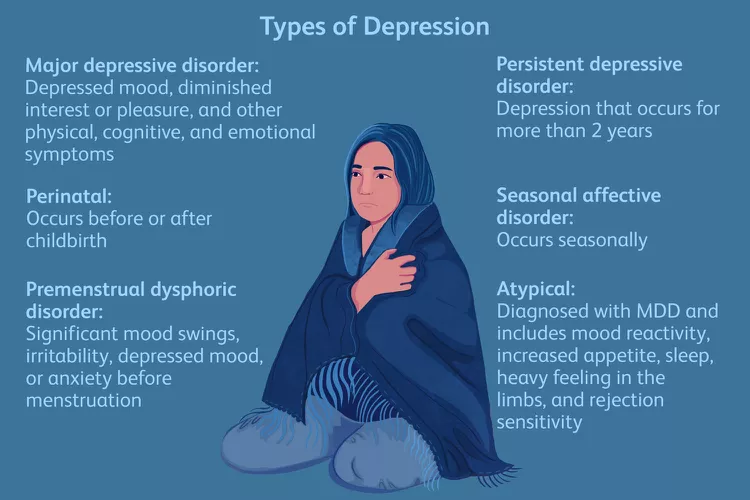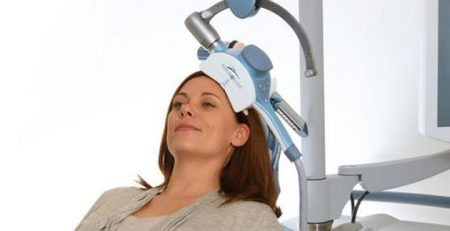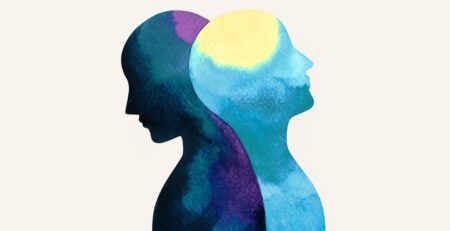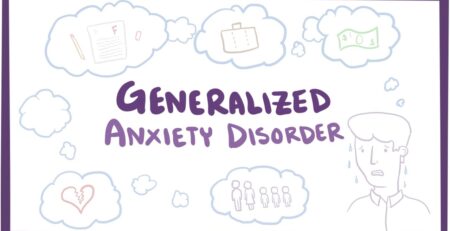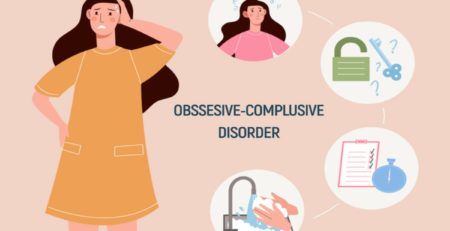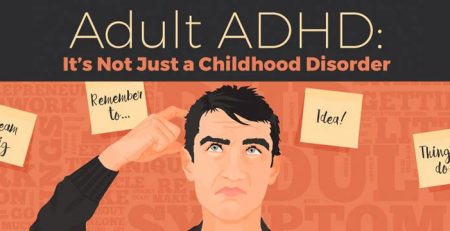Depressive Disorder (depression)
Depressive disorder, also known as depression, is a mental state that millions of people all around the globe experience. Unlike regular mood swings and feelings about everyday life situations, depression is more intense and long-lasting. It can greatly impact an individual’s life, from their relationships with family and friends, to their participation in and enjoyment of activities.
Depression does not discriminate – anyone, regardless of age, gender, or background, can experience it. However, some people may be more prone to developing it. Those who have faced trauma, suffered severe losses, or experienced other stressful events in their life, have a higher likelihood of developing depression.
Interestingly, research has shown that women are more likely than men to have depression – it affects approximately twice as many women as men. This could be due to a variety of factors, such as societal expectations, hormones, and biological differences.
It is crucial to recognize the impact that depression can have on people’s lives and seek help if needed. Whether it’s through therapy, medication, or support from loved ones, there is no shame in addressing and managing depression. It is important to take care of our mental health, just as we do with our physical health. By understanding depression and its prevalence, we can break stigmas and create a more inclusive and supportive society for all.
Did you know that an estimated 3.8% of the population struggles with depression? And if you break that down further, approximately 5% of adults, including 4% of men and 6% of women, experience this mental health condition. It’s alarming to think that even adults over the age of 60, about 5.7%, are not immune to depression.
But the numbers don’t stop there. Shockingly, it’s estimated that approximately 280 million people around the world suffer from depression. That’s almost the entire population of the United States! (1) Another interesting fact is that women are 50% more likely to experience depression than men, making it a predominant battle among women worldwide. In fact, it’s reported that more than 10% of pregnant women and women who have just given birth face the challenges of depression as well. (2)
Perhaps the most heartbreaking statistic is that over 700,000 people die by suicide each and every year. Yes, you read that right. That means that every 40 seconds someone takes their own life. Suicide is the fourth leading cause of death among young people ages 15 to 29, which is absolutely devastating to learn.
It’s devastating, but it’s also preventable. Despite known, effective treatments for mental health conditions, reports show that over 75% of individuals living in low- and middle-income countries do not receive treatment. (3) This is a staggering number and speaks to the barriers that exist when it comes to accessing effective care for mental disorders. This includes a lack of investment in mental health care, a shortage of trained health-care providers, and most unfortunately, social stigma attached to mental health struggles. Given these challenges, it’s time to start prioritizing and investing in mental health care for everyone, regardless of zip code, background, or any other barrier.
SYMPTOMS AND PATTERNS
Feeling depressed is not just fleeting sadness or a bad mood; it is an overwhelming experience that affects one’s entire being. A person going through a depressive episode may describe themselves as feeling sad, irritable, or empty, but that only scratches the surface. The extent of their emotions runs deeper – they may experience a loss of pleasure or interest in activities that once brought them joy and fulfillment.
It’s important to understand that a depressive episode is not the same as the typical highs and lows of everyday life. It is a debilitating state that persists for most of the day, every day, for at least two weeks. The duration of these episodes makes them all the more intense and challenging to manage. The feelings that someone with depression may experience are not within their control, which can feel unsettling and frightening.
Aside from the hallmark feelings of sadness and emptiness, there are also other symptoms that manifest during a depressive episode. These symptoms may include a significant lack of motivation and concentration, making it difficult to focus on even the simplest of tasks. The person may constantly berate themselves and feel excessive guilt or a sense of inadequacy or lack of worth. These negative thoughts can consume their mind and contribute to a vicious cycle of self-loathing.
Hopelessness about the future is another common symptom of depression. In the depths of a depressive episode, it may seem impossible for things to get better or for them to find any sense of happiness or fulfillment again. This overwhelming feeling of hopelessness and despair can be all-consuming and make it challenging to see any light at the end of the tunnel.
The thoughts that arise during a depressive episode can become dark and dangerous. Unfortunately, many individuals with depression struggle with suicidal ideations, which can feel like a tempting escape from their current turmoil. These thoughts about dying or suicide are alarming, and it is crucial for anyone experiencing these symptoms to seek help immediately.
The physical toll of a depressive episode should not be overlooked. Interrupted or disrupted sleep patterns are common, as are changes in appetite or weight. Some people may lose their appetite entirely, while others may turn to food for comfort, leading to unhealthy eating habits. A tired and low-energy state is also a common occurrence, as if the weight of depressed feelings is heavy on one’s back, weighing them down both mentally and physically.
In conclusion, a depressive episode is a challenging and destructive state that affects not only the mind but the body, leaving a person emotionally and physically drained. If you or anyone you know is experiencing symptoms of depression, it is vital to seek professional help and support. Remember that there is always hope, and with the right treatment and support, it is possible to overcome this tumultuous time.
It has been said that mental illness is an invisible wound. It plagues its sufferers with internal strife, making everyday tasks feel impossible to conquer. Depression, in particular, is a debilitating illness that affects all aspects of one’s life. It can manifest itself in the community, at home, and especially in the workplace and school environments.
A person’s experience with depression can vary greatly. Categorically, it can be designated as mild, moderate, or severe depending on the number and severity of symptoms, as well as its overall impact on the individual. This can make it difficult for others to understand, as what may seem like a minor issue to some, can be overwhelmingly significant for the person experiencing it.
There are also different patterns of depressive episodes for individuals, each with its own set of challenges. For instance, there is a single episode depressive disorder, which means that the person has only experienced one significant depressive episode. This can be a relief for those who encounter it. However, for others, they may experience recurrent depressive disorder, meaning that they have a history of at least two depressive episodes.
An even more challenging condition is bipolar disorder. It is characterized by alternating depressive episodes with periods of heightened energy and elation, known as manic episodes. These manic episodes can cause individuals to experience a range of symptoms, such as increased activity levels, racing thoughts, and decreased need for sleep. At times, these symptoms can lead to reckless behavior, which can severely impact the person’s relationships, work, and overall well-being.
In conclusion, depression can lead to difficulties in many aspects of one’s life, from personal relationships to professional endeavors. Its many forms and varying shades of impact can make it tough for both sufferers and those around them to fully grasp its effects. Therefore, it is crucial to educate ourselves not only on the symptoms and treatment options but also on how to support and empathize with those struggling with depression.
CONTRIBUTING FACTORS AND PREVENTION
Depression is a complex mental illness that is influenced by a variety of factors. One major factor that contribute to depression is the interaction of social, psychological, and biological aspects of a person’s life. This means that experiences in these three areas can impact an individual’s risk for developing depression.
One life event that has been linked to a higher likelihood of developing depression is adverse experiences. Unemployment, bereavement, and traumatic events are all examples of circumstances that can significantly impact a person’s mental health. These experiences can create intense feelings of sadness, hopelessness, and even a sense of worthlessness, which are all common symptoms of depression.
Aside from the emotional and mental toll, depression can also take a toll on one’s physical health. This occurs in a two-fold manner; depression can lead to physical symptoms and health issues, and physical health issues can also contribute to the development of depression. Evidence suggests that those who experience depression are more likely to have complications in managing or developing chronic illnesses. These may include cardiovascular diseases, cancer, diabetes, and respiratory diseases.
Furthermore, many common factors that can lead to depression also increase the risk of these diseases. For instance, physical inactivity and harmful use of alcohol are known risk factors for both depression and various chronic illnesses. This highlights the crucial interplay between mental and physical health and the impact each has on the other.
Individuals who have been diagnosed with chronic illnesses may also experience depression due to the additional stressors and demands that come with managing their condition. This can make it even more challenging to cope with their illness, leading to a decrease in overall well-being.
In conclusion, the formation and progression of depression is a complex process that involves various factors working together. These include social, psychological, and biological components, as well as the potential impact on one’s physical health. Addressing these factors and providing appropriate support and resources can help prevent the development or improve the management of depression. Additionally, prioritizing mental and physical wellness is essential in maintaining a healthy and fulfilling life.
DIAGNOSIS AND TREATMENT
Effective treatments are available for individuals experiencing depression, providing hope and direction for overcoming their symptoms. These treatments consist of psychological interventions and medications, both of which have shown effectiveness in managing the condition. However, it is strongly recommended to seek professional care if you have symptoms of depression. Don’t suffer alone; help is available for those who seek it.
The primary treatment for depression is psychological interventions. These can be used alongside medications in moderate to severe cases, but are not always necessary for mild depression. The focus of psychological treatments is to teach strategies for managing thoughts, emotions, and relationships. These interventions may involve talking with a licensed therapist or a certified lay therapist under supervision. And for those who prefer convenience or accessibility, talk therapy is available both in person and online. Additionally, self-help resources such as books, websites, and apps, can also provide tools and guidance in managing depression.
Among the types of psychological interventions that have proven effective for treating depression are: behavioural activation, cognitive behavioural therapy, interpersonal therapy, and problem-solving therapy. Each of these approaches offers unique strategies for individuals to overcome their symptoms and improve their overall mental well-being.
There are also medications that can be prescribed to assist in managing depression, such as selective serotonin reuptake inhibitors (SSRIs), the most common being fluoxetine. These medications work by regulating the levels of neurotransmitters in the brain, leading to improved mood and energy levels. It should be noted, however, that medication alone may not fully address the underlying issues associated with depression, making psychotherapy an important aspect of treatment. If you are experiencing symptoms of depression, remember that there is no shame in asking for help, and there is always hope for finding relief and healing. Seek support from professionals and loved ones; know that you are not alone in this battle.
To get help, call us today to make an appointment at 913.385.7252

